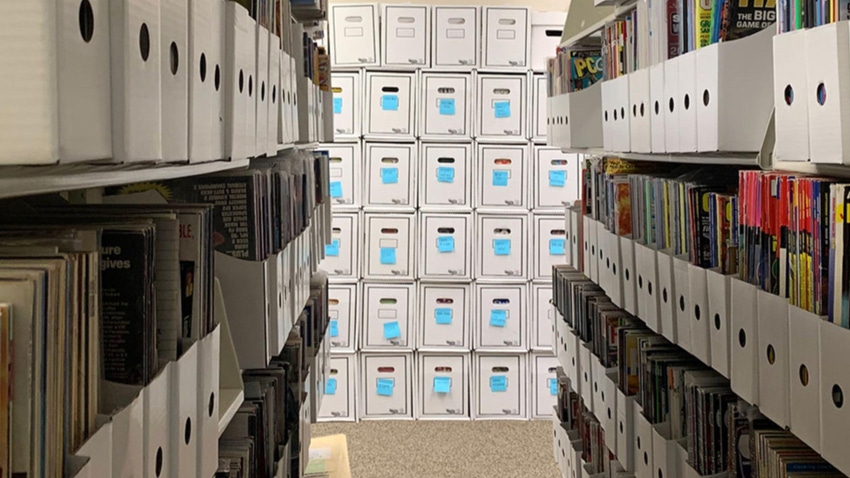
At a Glance
- The US Copyright Office recently weighed an exemption that would allow researchers to remotely access preserved video games.
- ESA lawyer Steve Englund strenuously opposed the exemption, saying its members viewed it as a threat to their copyrights.
- Englund shot down all suggestions to modify the exemption to better meet the needs of ESA members.
Update (4/24/24): In an email to Game Developer, the ESA called claims of the game industry shutting down libraries' preservation attempts as "simply not accurate."
"[We] have long been committed to the preservation of video games and support efforts by cultural institutions to build physical video game collections," it wrote. "It’s important to note that ESA and its members are committed to the historical preservation of games."
Pointing to the Copyright Office already allowing "legitimate" libraries and institutions archiving rights, the ESA stressed it's in favor of preservation, so long as it doesn't violate developers' rights under copyright law.
"The industry’s creative and economic vitality depend on strong copyright protections. ESA and its member companies...actively support professional efforts to preserve video games, and do so in ways that do not jeopardize future economic opportunity for their creative works."
Original story: The Entertainment Software Association continues to not have a hand in any efforts toward game preservation.
The new statements from the organization came in a hearing held by the United States Library of Congress Copyright Office to evaluate a proposed copyright exemption for remote access to archived games for video game researchers. This exemption was proposed by the Software Preservation Network in 2023.
During the hearing, lawyer Steve Englund was asked about the possibility of allowing libraries to preserve legacy games. In response, he said there's currently "[no] combination of limitations [ESA members] would support to provide remote access."
In 2023, the Video Game History Foundation revealed 87 percent of games released pre-2010 were currently not preserved in any capacity. Attempts previously made by the Library of Congress were halted by the ESA, which said it'd rely on publishers to take care of those efforts themselves.
During the call, multiple solutions to address the ESA's concerns over remote academic access to older games were proposed, but all shot down by Englund. He was not satisfied with either proposals to restrict access to those with academic credentials (implying many institutions would set up simple rubber-stamping checks to allow wide access), and derided the idea that limiting the exemption to collections with physical offices would be a satisfactory requirement.
On the latter topic, he said that any online-based library could set up a physical office to meet that standard, and allow for the creation of what is effectively a free-to-play arcade hosting a huge library of classic game titles.
To him, the worst thing for a non-profit organization (or anywhere with an online archive) would be to put a preserved game with "few restrictions" online. That kind of remote access would be "insufficient progress" when it comes to preservation.
AACS attorney Mike Ayers spoke up in support of the ESA's arguments. In his eyes, there should be "more substance" in combating the already-restrictive preservation rules.
"Anybody can have a mailing address," said Ayers. When it comes to just checking boxes as opposed to having anything verified, I would have concerns. [...] It's not clear [physical premises] will actually be effective."
During the hearing, other speakers were adamant that something needed to be done about game preservation and that both Englund and Ayers were missing the point.
VGHF library director Phil Salvador argued most libraries lack the manpower, expertise, or interest to make a meaningful game collection, either physical or digital.
Institutions making the active effort to do this are in the single-digit numbers, he speculated. Only specialized institutions and collections could really make use of the exemption for remote digital access.
Technology lawyer Kendra Albert argued that the ESA has been unwilling to meet researchers and preservationists halfway on these efforts. Any changes made or proposed, they said, will "never be enough" for rights holders for those games.
Likewise, they called it "upsetting" to say scholars' efforts were undermined by the idea of people caring these games. In Albert's eyes, that remark underlines how deeply out of touch both Englund and Ayers are about games as a medium.
"Harming scholarship and teaching because there might be an interest in recreational play...doesn't feel fair to them which put a lot of effort into making these works available."
The hearing was livestreamed by the Copyright Office, and was archived by Australian Twitch streamer Scott Percival. It will be made available on the US Copyright Office's website in a few week's time.
Correction: This story has been updated with additional context on the US Copyright Office Hearing as well as clarifying points made by the ESA and other organizations opposing the proposed exemption.
About the Author(s)
You May Also Like













